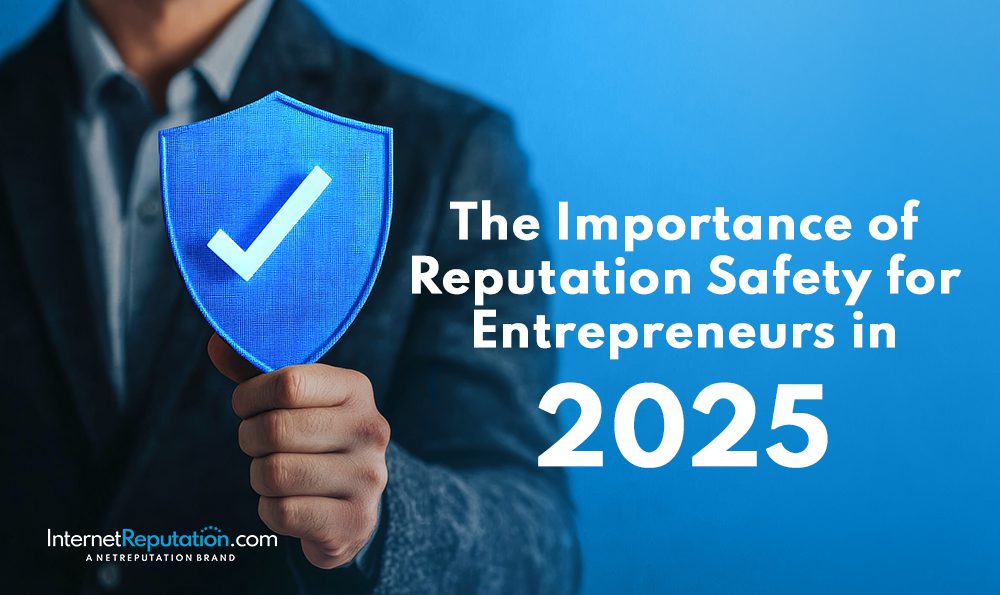Reputation by Design: Using Web 3.0 to Build Trust Online

Imagine you’re a small business owner, and through the power of Web 3.0, your company’s reputation is no longer solely in the hands of a few powerful review platforms. Instead, it’s built on a decentralized network that ensures your good service is accurately and transparently reflected.
You control your narrative, thanks to blockchain technology that makes every transaction and customer interaction verifiable and immutable. This shift is not just a possibility—it’s the precipice upon which the digital world currently teeters.
As a professional navigating the complex web of online trust, you recognize the potential for Web 3.0 to revolutionize the way reputations are managed, but you also wonder about the challenges and implications it may bring.
What does this mean for privacy, and how will these systems guard against new forms of manipulation that may arise? The answers to these questions could reshape the landscape of online business, and as the gears of this new era grind into motion, you realize that staying informed could be the key to staying ahead.
The Evolution of Trust
Trust, the bedrock of human interactions, has undergone a significant transformation with the advent of Web3.0 technologies. You’ve witnessed how traditional systems rely on centralized entities to mediate trust, but now, you’re seeing a seismic shift. Web 3.0 ushers in an era where you don’t just place your confidence in institutions, but also in cryptographic algorithms and decentralized networks.
You’re part of a digital revolution where trust is no longer solely a human affair. Smart contracts enable you to transact with strangers without needing a middleman. You can now verify someone’s reputation through blockchain records that are immutable and transparent. It’s a world where your digital identity and assets are in your control, reducing the risk of fraud and enhancing trust.
You’re observing the democratization of trust. With Web 3.0, you’re not just taking someone’s word for it; you’re relying on a system that’s impartial and incorruptible. This shift isn’t just technological; it’s cultural. You’re learning to trust the code as much as you’d a handshake in the past. It’s a new paradigm where trust is built byte by byte, block by block.
Understanding Web 3.0 Fundamentals
Before you can fully appreciate how Web 3.0 fosters trust, you need to grasp its basic principles.
At its core, Web 3.0 is about shifting control from central authorities to individual users through decentralization.
This shift introduces a trustless system where transactions and interactions don’t rely on traditional intermediaries, but rather on cryptographic verifications and consensus mechanisms.
Web3.0 Defined Simply
Web 3.0, often described as the next evolution of the internet, leverages blockchain technology to create a more decentralized and user-empowered online experience. Imagine having control over your data, trust built into every transaction, and a digital identity that’s truly yours. That’s the promise of Web 3.0. It’s not just an upgrade; it’s a revolution that places power back in your hands.
To stir your sense of possibility, here’s what Web3.0 embodies:
- Ownership: You’re not just a user; you’re a stakeholder with a voice.
- Trust: Transparent and secure exchanges without intermediaries.
- Freedom: Break free from corporate silos and experience an open internet.
Web 3.0 isn’t a distant dream—it’s unfolding now, and you’re part of this transformative journey.
Decentralization’s Role
At the heart of Web 3.0, decentralization reshapes how you interact with the Internet, transferring power from centralized entities to individual users like you. It’s a transformative shift, where you’re not just a passive consumer but an active participant in a distributed network.
This means that you can engage in transactions, create content, and share data without relying on traditional gatekeepers like big tech companies.
Decentralization ensures that you don’t have to trust a single authority; instead, trust is built into the network through technology like blockchain. This leads to a more secure and resilient internet where your data is yours alone, and you have a say in how it’s used.
It’s about taking back control and redefining online trust.
Trustless System Mechanics
Delving into the mechanics of trustless systems, you’ll find that blockchain technology allows transactions and interactions without the need for a central authority to validate them. This paradigm shift in how we approach online trust isn’t just a technical upgrade; it’s an emotional journey toward empowerment, security, and freedom.
Here are three core aspects that make trustless systems a game-changer:
- Empowerment: You’re no longer a bystander. You have control over your data and transactions.
- Security: Sleep soundly knowing your assets and interactions are protected by cryptography.
- Freedom: Break free from the shackles of traditional institutions. Explore a world where you transact with anyone, anywhere, at any time.
Embrace the change. Be part of the revolution. Trust is no longer given; it’s built and coded.
Decentralization and Reputation
In the realm of Web 3.0, decentralization reshapes how reputations are built and maintained online. You’re no longer at the mercy of centralized platforms that can manipulate or unfairly tarnish your digital identity. Instead, you control your reputation through transparent, peer-to-peer interactions. This shift means your online standing is a direct reflection of your actions and the trust you’ve earned from the community, not a score dictated by an opaque algorithm.
As you navigate this new landscape, you’ll find that smart contracts and decentralized applications (dApps) play a crucial role. They ensure that your contributions and transactions are immutably recorded on the blockchain. This creates a verifiable track record that anyone can check, making your reputation more resilient to false claims.
You also benefit from the collective validation of a decentralized network. Your reputation isn’t just your own to claim; it’s continuously verified by others through a consensus mechanism. It’s a self-regulating system where the community’s trust is both the currency and the judge.
In Web 3.0, you’re crafting a reputation that’s as robust and authentic as the blockchain it’s built on.
Blockchain-Enabled Transparency
Building on the foundation of a decentralized reputation, blockchain technology enhances online trust through unparalleled transparency in every transaction and interaction. You’re no longer in the dark about the origins and pathways of your online engagements. Every digital handshake, every commitment, and every claim is traceable and immutable.
You see, blockchain isn’t just a buzzword; it’s a revolution in how you perceive and establish trust online.
Imagine a world where:
- Every step is visible: You can track the lifecycle of a product from the manufacturer to your doorstep, ensuring authenticity and quality.
- Promises are kept: Smart contracts automatically execute agreed-upon terms, so you don’t have to worry about breaches or fraud.
- History is indelible: Past interactions and reviews are permanent and can’t be altered, ensuring a true record of reputation.
These aren’t far-off fantasies. They’re the current realities of Web 3.0 that you’re stepping into. Embrace this new era where transparency isn’t just an ideal—it’s woven into the very fabric of your online experiences.
With blockchain, you’re not just a passive observer; you’re an empowered participant in a trust-centered digital ecosystem.
Smart Contracts for Accountability
Smart contracts serve as the bedrock for accountability, automatically enforcing terms and conditions to ensure all parties fulfill their promises without bias or error. You’re engaging with a trustless system where the code dictates the outcome, leaving no room for dispute. Imagine you’re entering a business deal; the smart contract is your impartial judge and enforcer, programmed to act only when you’ve met your obligations. It’s a game-changer, especially online where trust is scarce.
You don’t need to rely on intermediaries to guarantee that a job’s done or a product’s delivered. Smart contracts do that for you, and they do it transparently. If you’re a freelancer, for example, payment for your work can be locked in a smart contract that releases funds only when you deliver. No chasing invoices, no pleading for payments. It’s all handled.
Moreover, smart contracts are immutable. Once they’re deployed on the blockchain, the conditions can’t be altered without consensus. You can rest easy knowing that the agreement won’t change unless you agree to it. This level of accountability is unprecedented in the digital realm and it’s all at your fingertips with Web 3.0. It’s not just about building trust, it’s about ensuring it.
Tokenization of Reputation
Web 3.0’s tokenization of reputation transforms your online credibility into a valuable asset that can be quantified and leveraged. Imagine your digital interactions, your contributions, and your endorsements all carrying a weight that’s recognized across platforms. This isn’t just a possibility; it’s becoming your reality with the advent of blockchain technology.
Tokenized reputation means that your online actions result in tokens—digital representations of your trustworthiness—that you can use to your advantage. Here’s how it can resonate with you, emotionally and practically:
- Empowerment: You’re no longer at the mercy of opaque algorithms. Your online worth is now in your hands, quite literally.
- Recognition: Each positive interaction or contribution you make doesn’t just vanish into the digital ether—it’s acknowledged, recorded, and rewarded.
- Opportunity: These tokens open doors to exclusive communities, improved services, and monetary rewards, simply because you’ve proven yourself trustworthy.
Privacy and Identity Verification
In the realm of Web 3.0, protecting your privacy while ensuring your identity is accurately verified is a critical balancing act. You’ve got to navigate the digital landscape, where personal data breaches aren’t just nightmares—they’re daily headlines.
But here’s the deal: Web 3.0’s architecture provides a unique solution through decentralized identity systems. These systems let you prove who you are without oversharing what you’d rather keep under wraps.
Imagine you’re at a virtual gatekeeper, one that guards access to a service you need. Instead of handing over your entire wallet—figuratively speaking—you flash a digital ID that confirms your credentials without revealing unnecessary details. It’s like showing a bouncer your ID card with only your age visible, keeping your address private.
This isn’t just about comfort; it’s about control. You decide what to share and with whom. Smart contracts can automate this process, ensuring you’re not overexposing yourself each time you transact.
The Future of Online Endorsements
As we consider the control Web 3.0 gives you over your personal information, let’s also examine how it’s revolutionizing online endorsements.
In this new era, your reputation follows you across platforms, untethered from the confines of any single service. You’re no longer just a username or an avatar; you’re a collection of verifiable experiences and interactions.
Imagine a future where online endorsements are:
- Truly Yours: Your endorsements are portable and owned by you, not by the platforms. They add weight to your online presence, substantiating your skills and trustworthiness.
- Transparently Authentic: Each endorsement is traceable to its origin, with blockchain technology ensuring that it can’t be faked or tampered with. This transparency breeds confidence and trust in your online persona.
- Dynamic & Interactive: Endorsements evolve with you, reflecting real-time feedback and achievements. They’re not static pats on the back but living testimonies to your ongoing growth and reliability.
In this landscape, you have the power to harness your endorsements as badges of honor, turning every online interaction into a building block for your digital legacy. Your endorsements become more than just words; they’re proofs of your excellence and trustworthiness, empowering you to stand out in the digital crowd.
Managing Reputation in Web 3.0
Harness the power of Web 3.0 to meticulously manage your online reputation, ensuring each interaction bolsters the trust you’ve built within your digital community. With decentralized platforms, you’re no longer at the mercy of centralized entities controlling your online presence. Instead, you wield the tools to shape how others perceive you in the digital realm.
Web 3.0’s transparent, immutable ledgers offer a clear record of your online dealings, allowing for a reputation that’s both verifiable and resistant to tampering. This shift means you’ve got to be proactive in your approach. Engage with your audience authentically, respond to feedback with grace, and consistently deliver on your promises. Each positive transaction is a brick in the foundation of your digital reputation.
Remember, in Web 3.0, your actions are your currency. Negative interactions can be as visible as the positive, so it’s crucial to navigate the space with integrity. Utilize smart contracts to create trust in transactions, knowing they’re secure and will execute as intended, reinforcing your reliability.
To thrive, stay informed on the evolving norms and tools within Web 3.0. Adapt quickly, and you’ll not only manage but enhance your online reputation, setting you apart in a trust-based digital economy.


